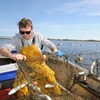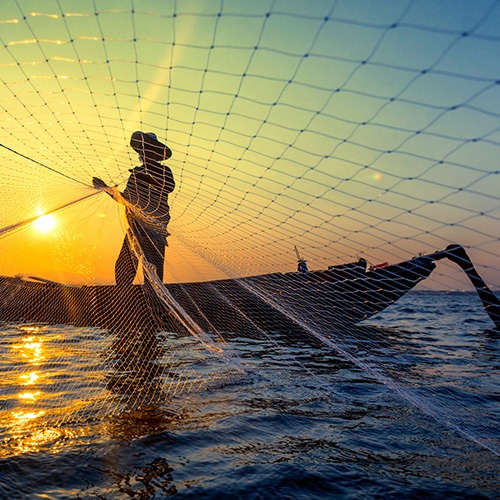New Zealand is leading the way in sustainable fisheries management. If you've eaten a McDonald's Filet-O-Fish in Europe or enjoyed toothfish in China, chances are you're one bite closer to understanding why.

Why New Zealand leads the way in sustainable fishing
Globally 15% of seafood caught is MSC certified. In New Zealand this is almost 50%. The New Zealand Hoki fishery was also one of the first fisheries in the world to achieve MSC certification way back in 2001. But why has there been such high levels of fishery engagement in a country where consumer demand for the MSC is not yet well developed? The answer lies in Europe, North America and China. These are New Zealand's primary export markets and MSC demand there helped spur the New Zealand fishing industry in to action.
The MSC's focus in New Zealand
New Zealand is important to the MSC for many reasons. New Zealand has vast marine biodiversity from tropical to sub-antarctic waters, and across coastal to deep sea ecosystems. Any fishing that occurs across New Zealand should be done in a way which ideally compliments but at the very least minimises the risk to ocean habitats and protected species whilst reducing unwanted catch. Over 13,000 people are directly employed in New Zealand’s fishing industry and rely on the premise of sustainable fishing for the future of their livelihoods. Finally, the market and export economy need fish both for today and tomorrow. Market volatility through a lack of fish is something marine stakeholders that buy into the values of the MSC program are keen to avoid and look towards MSC certification to assure markets that the fishery is being managed sustainably.
I had the great pleasure of attending the New Zealand Seafood Industry Conference and Technical Day in Queenstown where I presented our Pathway to Sustainability work with the following key points.
Firstly, collaboration is the way to score goals and make them stick. Working in isolation may eventually get you there but the road can be long. Instead of seeing transparency as a vulnerability, be bold and engage your entire stakeholder network. It will create impact faster when there are shared goals.
Secondly, both the marine environment and consumer demand are increasingly dynamic. Having a responsive management system can allow for flexibility in how we fish. This is a large part of the MSC expectation around sustainable fishing.
Finally, we must also be able to communicate to consumers the values which we stand for and how we achieve sustainability. It is more than lip service – Millennials and the emerging Generation Z consumers will ultimately reward those brave enough to do the right thing in a manner which offers complete transparency. So will my daughter of 18 months be able to enjoy a Filet-O-Fish at McDonald's when she travels through Europe in 18 years' time? I am sure that under the strong stewardship of the New Zealand fishing industry, there will be sustainable fish for years to come.
On the networking front we made new friends and allies and strengthened our relationship with WWF NZ, The Nature Conservancy, stakeholders across the catch sector, and those organisations providing robust, peer reviewed science which helps underpin the sustainability of fisheries engaged in the MSC program.
What's next for the MSC in New Zealand?
As for the future, New Zealand will continue to lead the way as we invest in launching the MSC’s classroom education initiative in a global first. More to follow on that.
You can follow Matt Watson on Twitter at @got_sole and email at [email protected]




